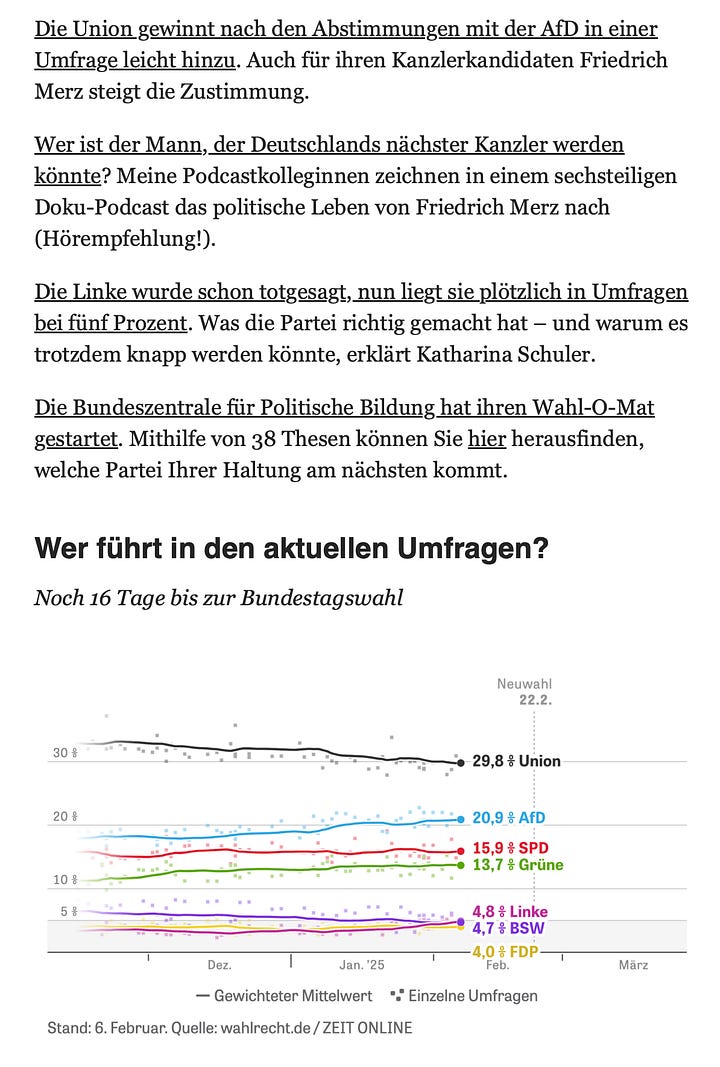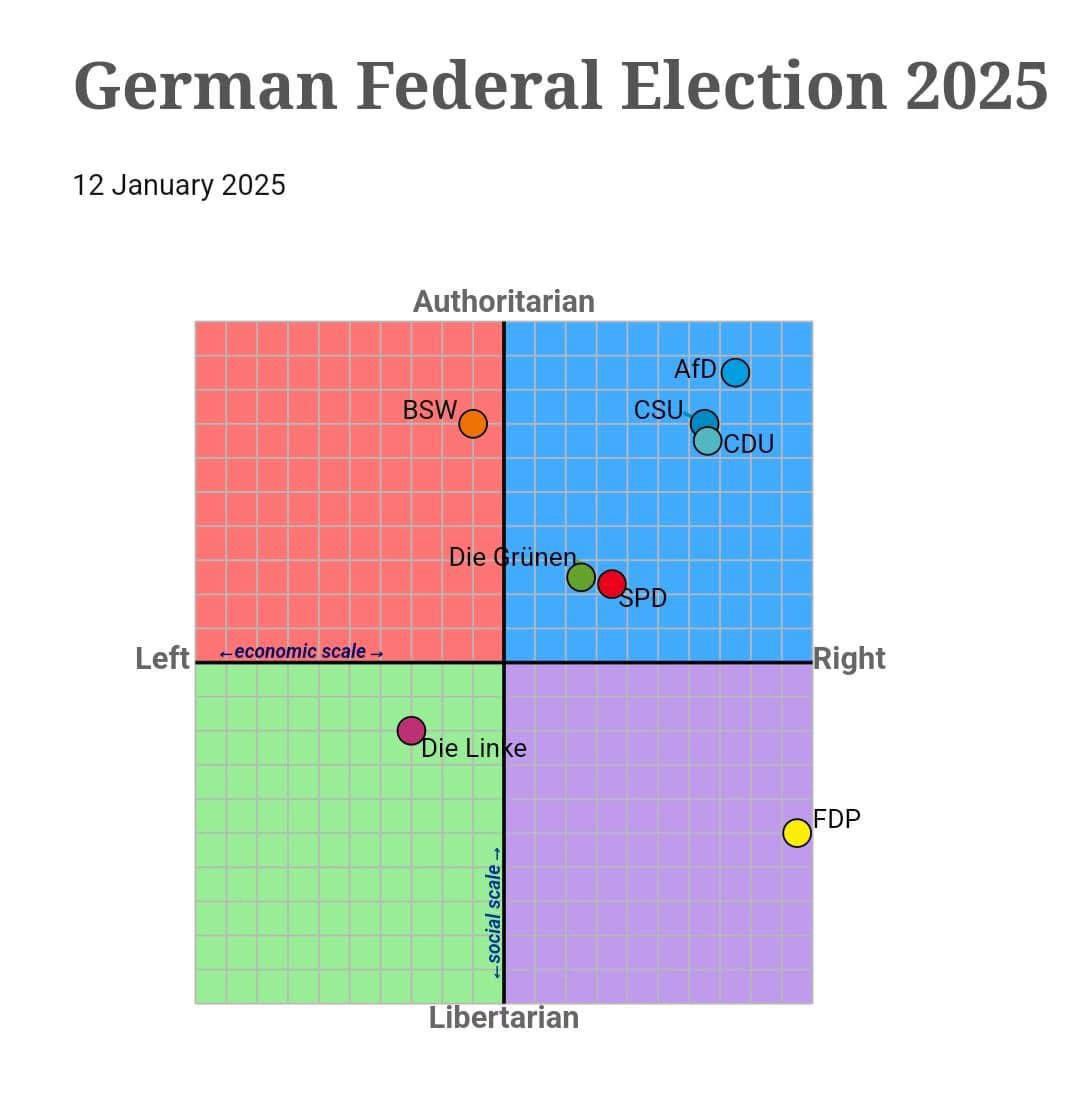With German elections two weeks away, neither German nor Anglo media seem to be able to decide if Friedrich Merz’s recent far-right date night in the Bundestag helped or hurt his Christian Democrats in the polls. Die Zeit suggested both at the same time.


His migration from the so-called center of German politics complete, Merz has shifted to talk of the economy and other bread-and-butter issues that, you know, might impact voters in more substantive and less jingoistically hallucinatory ways than the specter of foreigners bringing their “unacceptable attitudes” into the Teutonic Imaginary.
If Merz thinks this proves he is not a gateway drug to neo-fascism, we have bad news for him. His procedural antics with the AfD are the nationalist yin to his stump-speech economics socialist yang. We will let you, dear reader, put the two together.
Merz’s opponents, meanwhile, are suffering from some confusion of their own. For a would-be Social Democrat, Germany’s next ex-chancellor is striking a rather libertarian tone on the campaign trail. Never mind the collective good, what’s in it for me? Or, said otherwise, what’s in it for me is what’s good for the collective.
Since Germany’s actual pseudo-libertarians probably won’t make the cut come election day and its socialists might just squeak it out, Olaf Scholz can be forgiven for going with the devil he knows. Germany’s cosmic trajectory is conservative.
Of course, none of the acute political confusion could ever come close to overshadowing the existential kind. Despite their efforts, Merz and the AfD can’t throw a curveball at Germany’s constitutional order when there is no constitutional order to hit.





